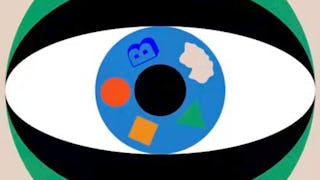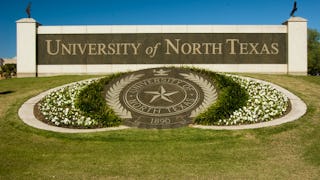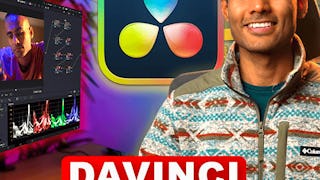Arts and Humanities
Most popular
 Status: Free TrialFree TrialT
Status: Free TrialFree TrialTThe Museum of Modern Art
Specialization
 Status: Free TrialFree TrialC
Status: Free TrialFree TrialCCalifornia Institute of the Arts
Specialization
 Status: Free TrialFree TrialC
Status: Free TrialFree TrialCCalifornia Institute of the Arts
Course
 Status: Free TrialFree TrialB
Status: Free TrialFree TrialBBerklee
Specialization
Trending now
 Status: Free TrialFree TrialC
Status: Free TrialFree TrialCCalifornia Institute of the Arts
Specialization
 Status: Free TrialFree TrialT
Status: Free TrialFree TrialTThe Museum of Modern Art
Specialization
 Status: Free TrialFree TrialW
Status: Free TrialFree TrialWWesleyan University
Specialization
 Status: Free TrialFree TrialC
Status: Free TrialFree TrialCCalifornia Institute of the Arts
Course
Online degrees
 G
GGeorgetown University
Earn a degree
Degree
 O
OO.P. Jindal Global University
Earn a degree
Degree
 U
UUniversity of North Texas
Earn a degree
Degree
Filter by
LanguageRequired *
The language used throughout the course, in both instruction and assessments.
Learning ProductRequired *
LevelRequired *
DurationRequired *
SkillsRequired *
SubtitlesRequired *
EducatorRequired *
All results
 Status: PreviewPreviewU
Status: PreviewPreviewUUniversity of Alberta
Skills you'll gain: Art History, Storytelling, Cultural Diversity, Social Justice, Intercultural Competence, Socioeconomics, Sociology, World History, Political Sciences, Social Sciences, Community Development, Policy Analysis, Natural Resource Management, Land Management, Governance
4.8·Rating, 4.8 out of 5 stars24K reviewsMixed · Course · 1 - 3 Months
 Status: Free TrialFree TrialC
Status: Free TrialFree TrialCCalifornia Institute of the Arts
Skills you'll gain: Typography, Design Elements And Principles, Graphic Design, Graphic and Visual Design Software, Design, Visual Design, Digital Design, Photography, Logo Design, Design Software, Creative Design, Photo Editing, Color Theory, Adobe InDesign, Graphic and Visual Design, Image Quality, Style Guides, Branding, Digital Publishing, Art History
4.7·Rating, 4.7 out of 5 stars22K reviewsBeginner · Specialization · 3 - 6 Months
 Status: Free TrialFree TrialW
Status: Free TrialFree TrialWWesleyan University
Skills you'll gain: Storytelling, Peer Review, Writing and Editing, Writing, Editing, Proofreading, Storyboarding, Content Creation, Constructive Feedback, Persistence, Professionalism, Creativity
4.6·Rating, 4.6 out of 5 stars6.3K reviewsBeginner · Specialization · 3 - 6 Months
 Status: Free TrialFree TrialT
Status: Free TrialFree TrialTThe Museum of Modern Art
Skills you'll gain: Art History, Performing Arts, Photography, Liberal Arts, Aesthetics, Creativity, Electronic Media, Culture, Cultural Diversity, Media and Communications, Public History, Social Justice, Design, Content Creation, Storytelling, Design Elements And Principles, Multimedia, Photo/Video Production and Technology, Sustainability Standards, Research
4.8·Rating, 4.8 out of 5 stars15K reviewsBeginner · Specialization · 3 - 6 Months
 Status: PreviewPreviewT
Status: PreviewPreviewTThe University of Edinburgh
Skills you'll gain: Liberal Arts, Political Sciences, Research, Psychology, Social Studies, Scientific Methods, Research Methodologies, Ethical Standards And Conduct
4.7·Rating, 4.7 out of 5 stars9.7K reviewsMixed · Course · 3 - 6 Months
 Status: Free TrialFree Trial
Status: Free TrialFree TrialSkills you'll gain: Musical Composition, Music Theory, Music, Peer Review, Music Performance, Post-Production, Media Production, Storytelling, Editing, Organizational Skills, Writing, Technology Solutions
4.8·Rating, 4.8 out of 5 stars3.2K reviewsBeginner · Specialization · 3 - 6 Months
 Status: Free TrialFree TrialB
Status: Free TrialFree TrialBBerklee
Skills you'll gain: Music Theory, Musical Composition, Music, File Management, Instrumental Music, Music Performance, Self-Awareness, Verbal Communication Skills, Performing Arts, Automation, Editing, Technical Support, Creativity, Coordination
4.8·Rating, 4.8 out of 5 stars4.3K reviewsBeginner · Specialization · 3 - 6 Months
 Status: Free TrialFree TrialB
Status: Free TrialFree TrialBBerklee
Skills you'll gain: Fundraising and Crowdsourcing, Music Theory, Musical Composition, Music, Peer Review, Brand Strategy, Professional Networking, Social Media, Branding, Production Planning, Sustainable Business, Music Performance, Leadership, Initiative and Leadership, Media Production, Campaign Management, Instrumental Music, Automation, Marketing, Entrepreneurship
4.7·Rating, 4.7 out of 5 stars3.6K reviewsBeginner · Specialization · 3 - 6 Months
 Status: Free TrialFree Trial
Status: Free TrialFree TrialSkills you'll gain: Music Theory, Musical Composition, Music, File Management, Instrumental Music, Storytelling, Music Performance, Automation, Editing, Technical Support, Writing, Creativity
4.8·Rating, 4.8 out of 5 stars2.1K reviewsBeginner · Specialization · 3 - 6 Months
 Status: PreviewPreviewY
Status: PreviewPreviewYYale University
Skills you'll gain: Classical Music, Music History, Music, Music Theory, Instrumental Music, Musical Composition, Art History
4.9·Rating, 4.9 out of 5 stars4.1K reviewsMixed · Course · 1 - 3 Months
 Status: PreviewPreviewT
Status: PreviewPreviewTThe University of Edinburgh
Skills you'll gain: Music Theory, Music, Classical Music, Musical Composition
4.5·Rating, 4.5 out of 5 stars1.8K reviewsBeginner · Course · 1 - 3 Months
 Status: Free TrialFree TrialB
Status: Free TrialFree TrialBBerklee
Skills you'll gain: Intellectual Property, Music History, Contract Negotiation, Music, Musical Composition, Peer Review, Lawsuits, Negotiation, Media Production, Instrumental Music, Automation, Entrepreneurship, File Management, Business, Legal Strategy, Law, Regulation, and Compliance, Writing, Digital Assets, Innovation, Team Management
4.8·Rating, 4.8 out of 5 stars5.3K reviewsBeginner · Specialization · 3 - 6 Months
New releases
 Status: PreviewPreviewU
Status: PreviewPreviewUUniversity of Glasgow
Course
 Status: Free TrialFree TrialC
Status: Free TrialFree TrialCCalifornia Institute of the Arts
Specialization
 Status: Free TrialFree TrialS
Status: Free TrialFree TrialSSkillshare
Specialization
 Status: PreviewPreviewM
Status: PreviewPreviewMMichigan State University
Course
What brings you to Coursera today?
¹ Median salary and job opening data are sourced from Lightcast™ Job Postings Report. Content Creator, Machine Learning Engineer and Salesforce Development Representative (1/1/2024 - 12/31/2024) All other job roles (7/1/2024 - 7/1/2025)







